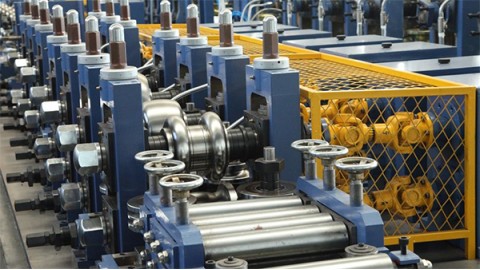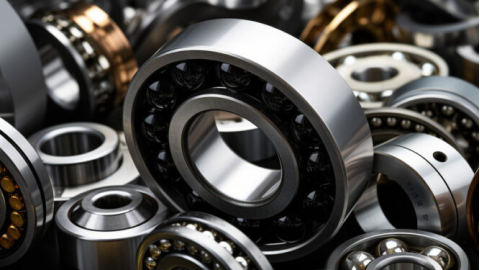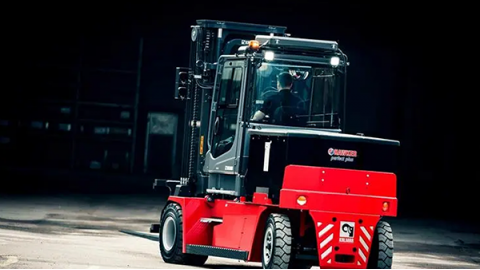Top 10 Motors and Motor Control Manufacturers
Motors and motor control systems are central to modern automation, robotics, and energy. Motors convert electrical power into mechanical motion. Motor control regulates speed, torque, and position. The global motor market is on track to reach nearly $200 billion by 2027. This growth is driven by Industry 4.0, electric vehicles, and renewable energy. This list ranks the top ten manufacturers based on innovation, market share, and global impact.

Motor and Motor Control Basics
Motors come in two main types: AC and DC. AC motors include induction and synchronous models. DC motors feature brushed and brushless designs. Motor control methods include Variable Frequency Drives (VFDs) and servo systems for precision. Energy efficiency standards like IE3 and IE4 guide design. Smart motors now use IoT for predictive maintenance. Rare-earth magnets such as neodymium enable high-performance permanent magnet motors. These components are vital for HVAC, pumps, and fan applications.
Ranking Criteria for Top Manufacturers
This ranking uses 2023 financial reports and market data from sources like Fortune Business Insights. Key criteria include annual revenue, with companies over $5 billion preferred. Product innovation is measured by patents and new technologies. Global presence means operations in over 50 countries. Sustainability efforts, like carbon-neutral manufacturing, are also considered. The ranking excludes firms with poor customer feedback or recall history. Custom solution capability for sectors like aerospace is a plus.
Siemens AG
Siemens is a German leader founded in 1847. It reports annual revenue around €80 billion. Its SIMOTICS motor range covers low-voltage to high-voltage needs. These motors integrate with MindSphere for IoT connectivity. Sinamics VFDs offer precise control for manufacturing and energy sectors. Innovations include synchronous reluctance motors for electric vehicles. Siemens leads in Europe, competing with Bosch and ABB. Its sustainability goal is carbon-neutral production by 2030.
ABB Group
ABB is a Swiss-Swedish firm with $30 billion in yearly revenue. It specializes in robotics and motor systems. The AM motor series meets the IE5 ultra-premium efficiency standard, saving up to 40% energy. The ABB Ability platform enables remote monitoring and predictive maintenance. Its acquisition of Baldor Electric strengthened its US market share. Key applications include large motors for mining and marine use. ABB excels in renewable energy projects like wind farms.
Nidec Corporation
Nidec is a Japanese company established in 1973. It generates $16 billion in annual revenue. It is known for small precision motors in hard disk drives and autos. The E-Axle system for EVs delivers high torque density. Acquisitions like Embraco and Leroy-Somer expanded its home appliance and industrial motor lines. Innovations include vibration suppression for robotics. Global factories in China and Mexico keep costs low. It competes with Mabuchi Motors in consumer electronics.
Rockwell Automation
Rockwell is a US-based company with $8 billion in revenue. It provides Allen-Bradley motors and Kinetix servo control systems. FactoryTalk software supports industrial automation with digital twin technology. PowerFlex VFDs serve the oil and gas industry. It focuses on North America but expands in Asia via partnerships. Sustainability efforts include energy-efficient motor designs that cut usage by up to 60%.
Yaskawa Electric
Yaskawa is a Japanese firm founded in 1915. It earns $4 billion yearly. It leads in servo motors and inverters. The Σ-7 servo motor enables nano-level positioning for semiconductor manufacturing. V1000 inverters are used in building automation. Yaskawa is strong in robotics, with Motoman robots featuring integrated motor control. Its market share grows in Asia and the Americas, competing with Fanuc. R&D focuses on AI-driven control algorithms.
Bosch Group
Bosch is a German conglomerate with €80 billion in annual revenue. It offers diverse motors, from automotive starters to industrial drives. The MSK servo motor works in packaging machinery with EtherCAT communication. The Bosch Rexroth division provides hydraulic and electric hybrid systems. Innovations include silicon carbide semiconductors for efficient power conversion. It aims for carbon-neutral products by 2030. Its strategy emphasizes partnerships with automakers.
General Electric (GE)
GE is a US company with $80 billion in revenue. Its GE Power Conversion unit produces large motors for energy and transport. The LV series motor handles harsh environments like oil drilling. Digital solutions like the Predix platform enable predictive maintenance. GE leads in wind turbine generators using permanent magnet technology. Its recent split into GE Vernova focuses on energy transition. It competes with Siemens in power infrastructure.
Toshiba Mitsubishi-Electric Industrial Systems (TMEIC)
TMEIC is a Japanese-American joint venture with $3 billion in revenue. It specializes in high-voltage motors and drives for steel and mining. The TMdrive-Xe2 variable frequency drive offers high reliability and reduced downtime. Innovations include multi-level topologies for energy savings. Global projects include cooling systems for data centers. It emphasizes custom solutions, such as motors for marine use. Market share is strong in Asia and the Middle East.
Regal Rexnord
Regal Rexnord is a US firm with $5 billion in annual revenue. It expanded through acquisitions like Marathon Electric. It produces NEMA and IEC standard motors for HVAC and agriculture. The Genteq brand offers variable speed controls. Digital tools like the Perceptiv monitoring system enhance customer support. Sustainability initiatives include motor recycling programs. It competes with WEG in the Americas.
WEG Group
WEG is a Brazilian company with $6 billion in revenue. It is known for cost-effective motors meeting IE3/IE4 standards. The W22 motor series resists corrosion in water and wastewater treatment. Variable frequency drives like the CFW11 serve renewable energy. Global expansion in Africa and Europe features local production to reduce tariffs. Innovations include motors for solar pumps. WEG emphasizes green manufacturing with recycled materials.
Future Trends
Future trends include AI integration for adaptive motor control to cut energy waste. Permanent magnet motors are shifting to rare-earth-free designs like ferrite magnets. This change addresses supply chain risks. The electric vehicle motor market expects a 15% CAGR until 2030. Challenges include global chip shortages affecting motor controller production. Top manufacturers lead through digitalization and sustainability.




